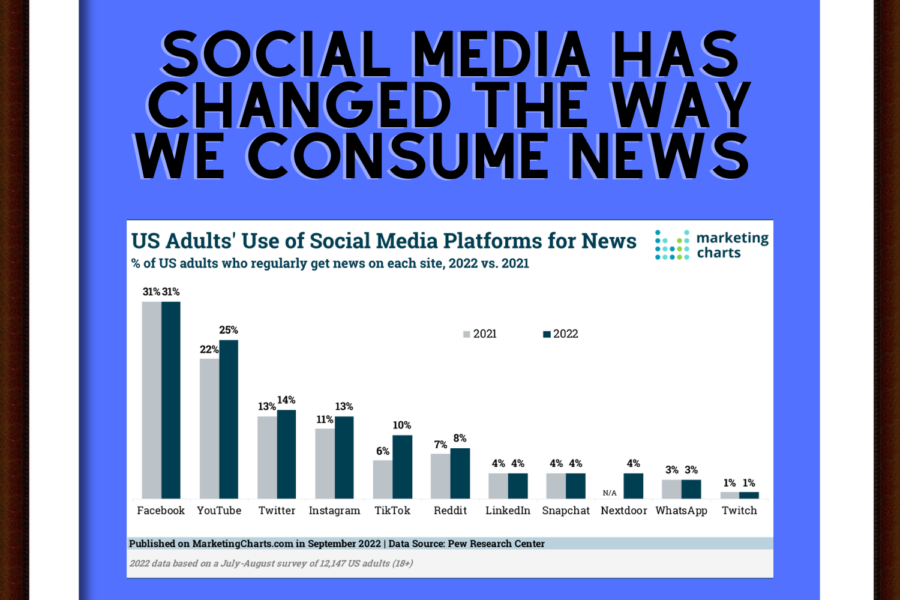How has Social Media Changed the Way we Consume News?
This bar chart survey shows how much each social media platform U.S adults use for news. According to the survey, adults use Facebook the most for news and twitch the least. Every platform is used the same or more than last year and continues to increase. Pew Research Center conducted this survey.
Now people get their news information online, specifically from social media. Social media has become the primary news source online; with more than 2.4 billion internet users, nearly 64.5 percent receive breaking news from Facebook, Twitter, YouTube, Snapchat and Instagram instead of traditional media. In a recent survey, 50 percent of Internet users said they heard about social media before ever hearing about it on a news station. The survey found a 57 percent increase in traffic to news sites referred to from social media.
There has been a decrease in how much of an article people read. Most people scroll through newsfeeds, read the headlines, or watch a short video clip. An average reader will only read an article for 15 seconds or less; the average video watch time is 10 seconds.
Social platforms have control over what news and information we see. An article must be liked and shared multiple times before many people see it on their feeds. Many fake news websites compete for attention with sensational headlines and absurd storylines that tend to get shared more often due to a lack of readers fact-checking or reading more than the headline. Fake news is more likely to spread the truth.
Content must be shareable and likable, so often, it’s overly exaggerated for social media. Brands can pay more to appear in news feeds and get noticed. News happens fast now. Today’s story will be forgotten tomorrow. It’s easy to miss things because of how quickly stories can get turned around and shared. While having easy access to information is great, it’s worth checking sources and not checking headlines as truth. With social media as our news managers, we must be fact checkers for the media.


